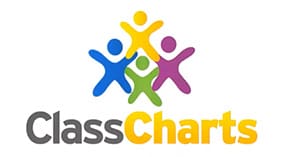Plymstock School Humanities Department
Humanities
Humanities consists of three separate subject – Geography, History and Religious Studies. We are an enthusiastic and hardworking team – and expect the same from our students! We combine our knowledge and love of our subjects to empower students to understand, respond to and shape the world they are growing up in and will one day inherit.
Geography
Geographical skills and concepts are taught through issue-based enquiry and thematic approaches, whereby ICT is used as a tool to enhance the quality of teaching and learning. A variety of teaching and learning strategies are deployed that are student centred and designed to challenge and engage students.
The study of geography stimulates an interest and a sense of wonder about the natural and human worlds, encouraging questioning, investigation and critical thinking. It enables young people to make sense of a complex and dynamically changing world, whilst developing knowledge of places and environments, an understanding of maps, and a range of investigative and problem-solving skills both inside and outside the classroom. Through new technologies, including geographical information systems (GIS), young people are able to obtain, present and analyse information. Geography explains where places are, how landscapes are formed, how people and their environments interact, and how a diverse range of economies, societies and environments are interconnected, enabling pupils’ own experiences to investigate places at all scales.
Geography enables pupils to become global citizens by exploring their own place in the world, their values and their responsibilities to other people, to the environment and the sustainability of the planet.
History
History is a skills driven subject working both chronologically and thematically through British, European and World History to encourage, develop and prepare participating citizens in a modern 21st Century liberal democracy.
Students will be introduced to the key GCSE skills in the first half-term of Year 7 and then develop and progress these skills further through studies of: Medieval Realms (1066-1485), Religion and Power (1485-1750), Industry and Imperialism (1750-1900), The Twentieth Century and Aspects of the Modern World (1900-) – bringing their historical knowledge as close to the present day as is possible through a coherent, chronological narrative. In doing so History will help to:
- Develop critical thinking
- Develop extended writing
- Support and expand literacy
- Instil British values
- Raise awareness of citizenship
- Introduce political and economic literacy
- Contextualise other curriculum areas
- Expand students’ cultural capital
EPiC and Religious Studies
The Learning Journey for our students from Year 7 onwards will follow the themes of Religion, Relationships and Spirituality, all of which will be built upon the discipline of Philosophy and Ethics. The schemes of work have been developed specifically for the needs of our students, helping them to develop both their knowledge and understanding in these areas of study. The course also aims to provide opportunities within and beyond the school for learning that includes first hand experiences and activities involving people, places and events. There will be a key focus upon contemporary issues through the use of different media including that of film. Throughout this journey, students will analyse and interpret a wide range of religious, philosophical and ethical concepts in increasing depth. They will investigate issues of diversity within and between religions and the ways in which religion and spirituality are expressed in philosophy, ethics and the arts. They will expand and balance their evaluations on the impact of religions on the individual, communities and societies, locally, nationally and globally.
Special note needs to be made that the department will adapt the areas of study at any time to reflect what is happening in the world. This could be looking at changes in the law with regards to medical research or issues raised by the right to die or issues of human rights or the advent of War for instance. This department is dynamic; it reflects the interests of our students and has the ability to be part of a dialogue with often controversial issues as they arise.
